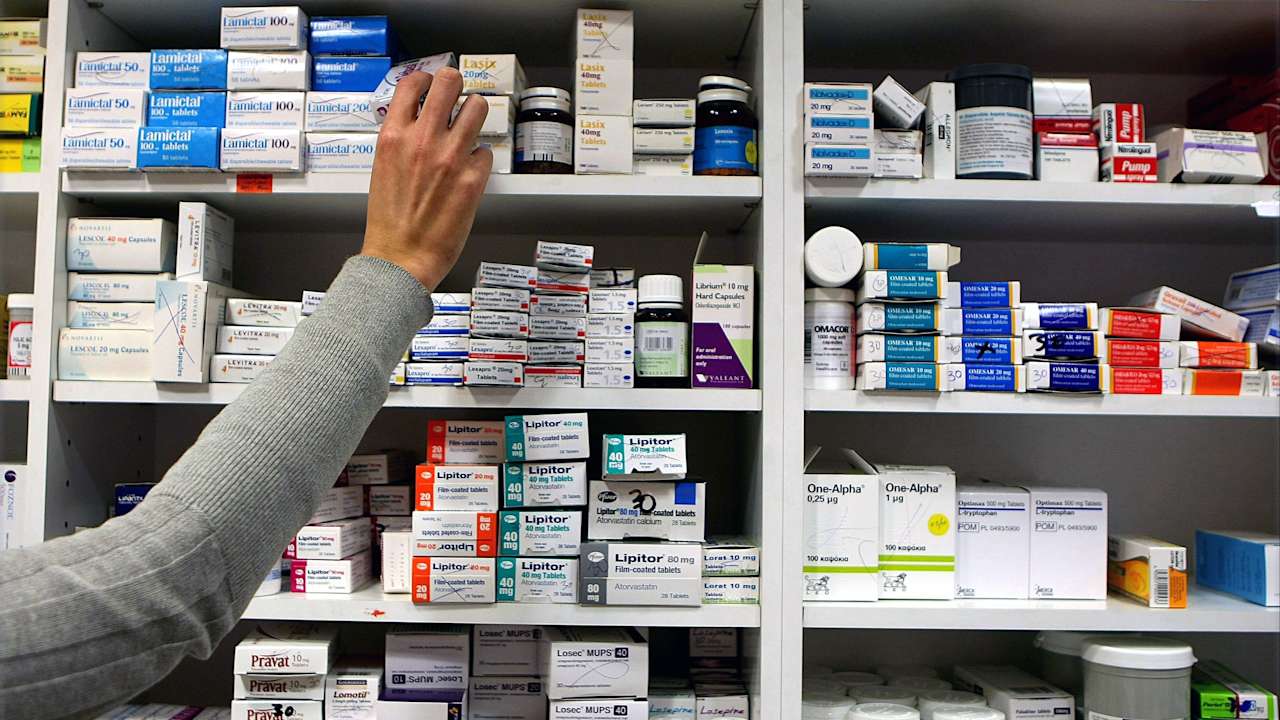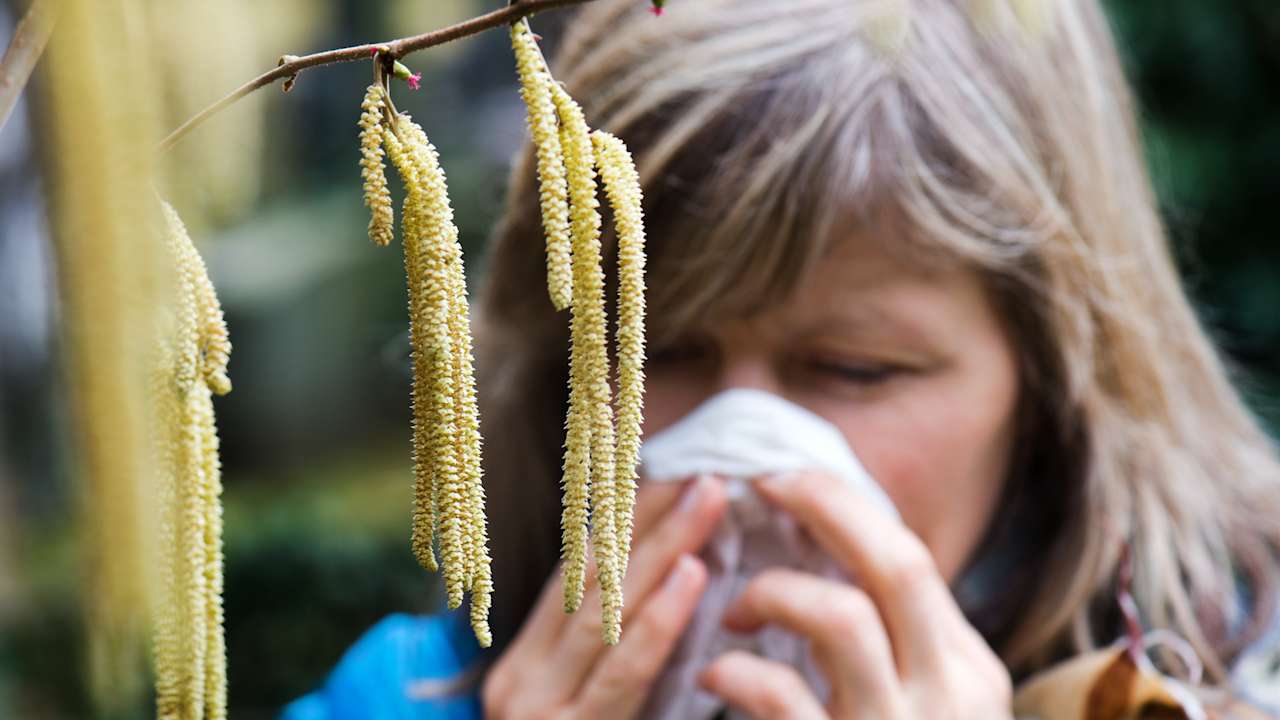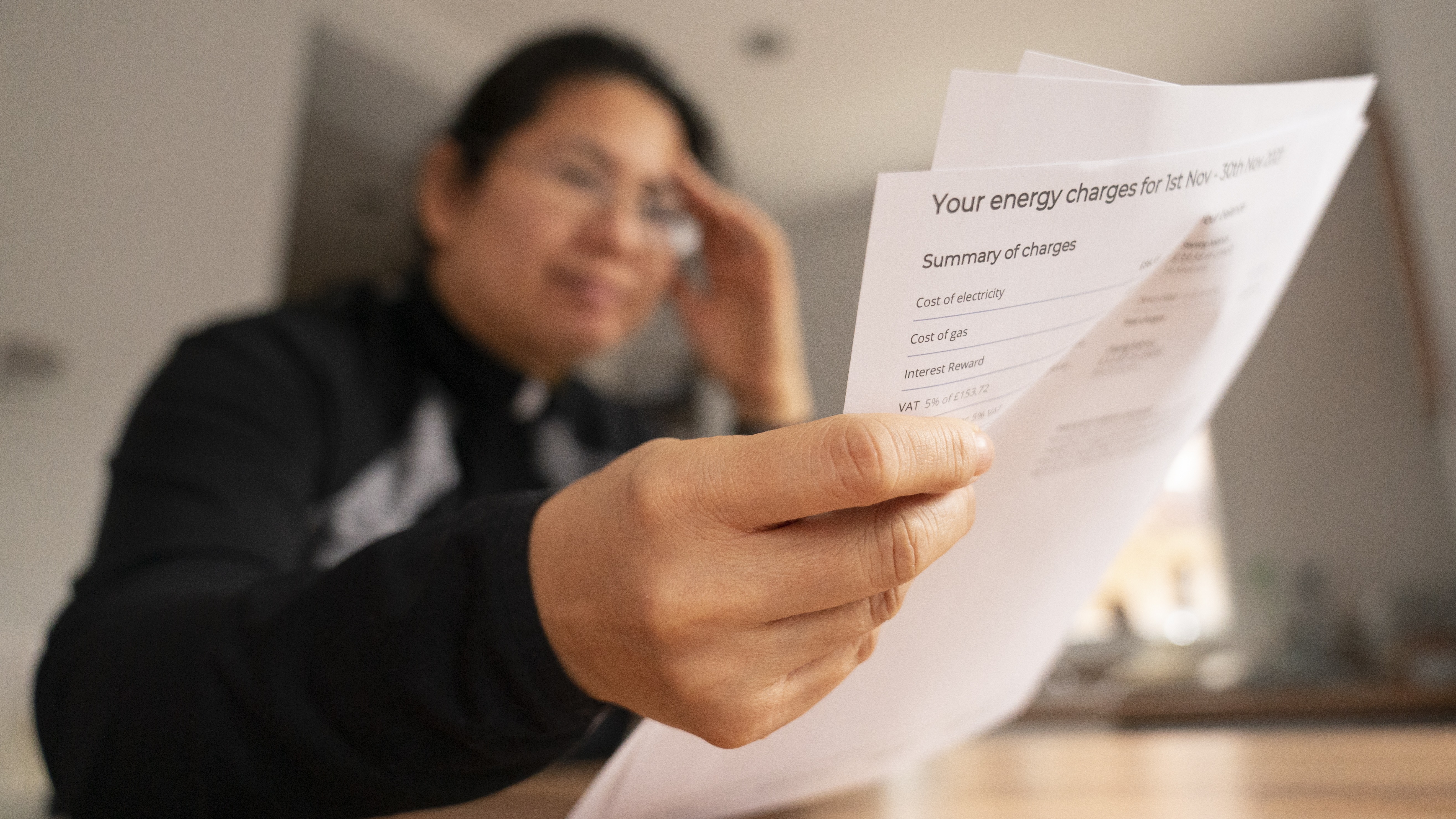By Jamel Smith, ITV News Producer
British hay fever sufferers are being urged to prepare for “very high levels” of pollen over the next week amid an ongoing “medicine shortage crisis” across the country.
Dry, summer weather, which is expected to sweep across the country into the weekend and early next week, is driving up pollen levels, according to the Met Office.
The development is of particular concern for hay fever sufferers, with one pharmacist telling ITV News that patients are playing “pharmacy bingo” due to the short supply of medication.
A Met Office Spokesperson said: “Grass pollen is the main culprit. At this time of year, periods of warm and dry weather means that grass pollen can be released quite easily and cause some impacts for those who suffer with hay fever.
“Warm and dry conditions are likely to continue into the middle of next week, before more unsettled conditions could provide some relief from the Very High pollen levels for many.”

Why is there a medicine shortage?
Reena Bhari, 46, owner of SG Bhari Pharmacy in Sutton, has struggled to source nasal sprays and eye drops that relieve hay fever symptoms, as well as medications for epilepsy and schizophrenia.
“We field lots of phone calls where patients are literally trying to play pharmacy bingo here, they’re ringing around every pharmacy to see if anybody has any [medication],” she said.
“Then we’re being sent prescriptions to try to source some of these medications. We spend at least one to two hours a day trying to source medications from different wholesalers… or source alternatives for patients to be changed to.
“Sometimes the doctor surgeries contact us to say, ‘look, we can’t get this medication. Can you get it or suggest an alternative?’
“So we’re spending an excessive amount of time a day trying to manage these shortages. This adds to the current pressures that pharmacies are facing already.”
Ms Bhari said that pharmacies have faced a 40% reduction in funding over the past decade in real terms, resulting in a significant “pinch point” where they are required to do more for less.
She highlighted multiple reasons for the global shortage of medicines, including Brexit and disruptions in global supply chains due to conflicts worldwide.
Research conducted by the Nuffield Trust and academics, funded by the Health Foundation, identified “underlying fragilities” in both the global and UK medicine supply chains.
The study noted that while issues in the UK were not solely caused by Brexit, leaving the European Union (EU) has worsened them.
This is due to the fall in the value of sterling and the UK being removed from EU supply chains.

What is hay fever and what are its symptoms?
Hay fever is an allergic response to airborne particles, such as pollen, dust mites or animal hair, that affects almost ten million people in England – almost one in four adults and one in ten children.
Carolina Goncalves, a health expert and superintendent pharmacist at Pharmica, told ITV News it can be categorised into two types: seasonal hay fever and perennial hay fever.
Seasonal hay fever is triggered by allergens, including pollen and grass, and typically occurs during the spring and summer months.
Whereas perennial hay fever can affect people throughout the year and is usually caused by dust mites, pet hair, and mould.
Hay fever differs for each person, but commonly affects the eyes, nose, and throat, while for those who suffer from asthma their symptoms may worsen during hay fever season.
Hay fever symptoms can include:
- Nasal symptoms resulting from inflammation of the lining of the nose, such as frequent sneezing and itchy, runny, or blocked nose
- Itchy and watery eyes
- An itchy throat
- Coughing
- Headaches
- General fatigue
What are the best hay fever treatments?
Antihistamine tablets block the production of histamines, which the body produces in response to allergies.
Nasal sprays are effective for nasal inflammation or breathing problems. Ms Goncalves recommends corticosteroid nasal sprays or a saline spray for milder symptoms.
Eye drops are recommended for relieving itchy and dry eyes. Ms Goncalves suggests using sodium cromoglicate drops to prevent itchiness, redness, and dryness.
Antihistamine eye drops are also effective, blocking histamine release for quick relief from itching and swelling.
How can you prevent hay fever?
Experts recommend HEPA (high-efficiency particulate air) filters to significantly reduce pollen and other allergens in indoor air.
Ms Goncalves said: “These filters are capable of trapping microscopic particles, including pollen grains, and preventing them from circulating and settling within the home environment.”
Regular showers and changing into fresh clothes during high pollen seasons is also recommended.
Pollen grains can cling to clothing, hair, and skin while outdoors, and these measures help prevent them from being carried indoors, where they could increase allergen exposure.
Additionally, applying a small amount of petroleum jelly, such as Vaseline, around the nostrils can act as a barrier to trap pollen before it enters the nasal passages.
The Met Office advises during periods of very high pollen levels to minimise exposure by changing clothes when entering indoor spaces, avoiding drying clothes outside, and keeping windows closed while driving, when possible.
Follow STV News on WhatsApp
Scan the QR code on your mobile device for all the latest news from around the country





























